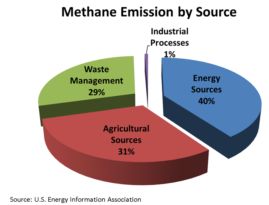On Monday, District Judge Haywood Gilliam imposed a schedule on EPA for review of state plans under EPA’s 2016 rule for emissions from municipal solid waste landfills. The ruling is notable for two reasons.

Because EPA did not dispute that it had missed certain deadlines, its first line of defense wasn’t that it complied with the statute; it was that the states challenging EPA’s delay did not have standing. Although this is not the first case interpreting state standing after Massachusetts v. EPA, I think it’s nonetheless important evidence of the scope that courts are likely to give to Massachusetts v. EPA in these types of cases. As states become more and more active in challenging Trump administration climate rollbacks, the standing decision in Massachusetts v. EPA will assume ever greater importance.
The second important element of the decision is its discussion regarding what deadlines should be imposed on agencies when they miss statutory deadlines. The Court actually was not as harsh towards EPA as it might have been and provided what might be considered some solace to the agency in noting that, however much a court might be annoyed at repeated agency delay, agency recalcitrance does not justify imposing deadlines that are not feasible.
On the other hand, the Court also made clear that agencies may not create infeasibility and then point to that infeasibility as grounds for further delay.
EPA seeks additional time to complete a nondiscretionary duty it failed to meet until ordered to act by the Court, because it faces other court orders to perform other unmet nondiscretionary duties. The Court finds EPA’s self-inflicted inconvenience, by itself, does not satisfy the “especially heavy” burden necessary to warrant more than six months to promulgate a federal plan.
You’ve got to admire EPA and its DOJ lawyers. It takes a certain amount of chutzpah to miss deadline after deadline, and then to argue to a court that the agency needs more time to meet its obligations, because it’s so busy catching up to the other deadlines that it chose to ignore.
